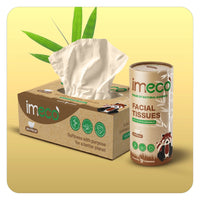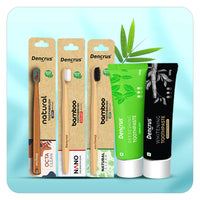trash could be swimming with the fish in the oceans!!!”
Alarming enough?
Every year 19-23 million tonnes of plastic is dumped into the water bodies and you might be contributing to it. In times when plastic is easily available, the usage is bound to increase. However, taking a step back and rethinking your decision can change this scenario gradually.
How Do Daily Choices Affect Our Oceans?
While you might think that the sole reason behind ocean pollution is large industries, factory waste, chemical discharge, it isn’t totally true. Your daily routine and actions contribute to it too. For example, the one-time used plastic cutlery, the shampoo bottle you toss, and even the fast fashion you choose, all contribute to ocean pollution.
Most of these choices feel harmless at the moment. But over time and with billions of people thinking the same way, the condition just keeps getting worse. Your plastic waste’s journey is shorter and what starts in your home can end up in the sea before you even realize.
4 Eco-Friendly Choices You Can Start With

According to the World Resources Institute, 8-10 million metric tons of plastic is disposed in the ocean each year.
Do you want to be a part of the system that turns a blind eye to the hurting planet? Or want to be the change-maker?
1. Choose Reusables Over Disposables
Switching from single-use items to reusable alternatives may seem like a small act. But it’s a powerful one. Every time you choose a metal straw over a plastic one, or carry a cloth bag instead of taking a plastic one at checkout, you're helping reduce the volume of plastic waste that could end up in the ocean.
Even something as simple as storing leftovers in glass containers instead of plastic wrap makes a difference. These small swaps not only cut down on plastic pollution but also encourage a more sustainable lifestyle over time.
2. Support Local and Sustainable Brands
Every purchase you make indirectly adds up to the kind of world you want to live in. When you choose to support local and sustainable brands, you are making more than just a purchase.
There are many eco-conscious brands that focus on low-waste packaging, responsibly sourced materials, and transparent supply chains. By supporting them, you will be backing a vision that respects both people and the planet.
3. Reduce, Reuse, and Recycle Packaging
Have you ever thought that the parcels you receive occasionally also add to the ocean pollution? Yes, you read that right!
Packaging is often the first thing you throw away and is the biggest contributor to ocean pollution. But with a bit of awareness, you can track and reduce that too. Find out if the brand you are buying from believes in the concept of sustainability, say no to bubble wrap, or avoid overly packaged items, and rather prefer sturdy paper packaging.
Next, look for ways to reuse what you already have. Like, repurpose glass jars for storage, reuse sturdy boxes for organizing, or get creative with cloth wraps instead of plastic gift wrap.
And of course, always recycle right. Clean out containers before tossing them in the bin, and make sure you're following your local recycling guidelines.
4. Be an Advocate: Your Voice Matters for Oceans
When you take a step towards making a change, don’t keep it a secret. Let the world around you know.
For example, when you buy an eco-friendly product, post it online and motivate others to join the eco-conscious movement. Encourage people to participate in the global celebration of sustainable living by starting a conversation in your community, and start with shifting to small changes in habits.
Ecoconsious - A Brand Doing Its Part
In observance of this year’s World Ocean Day theme - ‘Wonder: Sustaining what sustains us’, we would like to take this opportunity to reflect on and share our contributions toward protecting and preserving our oceans so far.
- 384 MT of plastic diverted
- 312332 MT CO² Offset/Year
- 1115536 Bamboo planted
- 1200+ Farmers & Artisans Onboard
We are doing our share of duties towards the ocean! Are you?








